UK-based game studio Magicave has unveiled its latest creation Beneath The Six, a single and multiplayer turn-based roguelike game set to captivate players on PC and Mac platforms when it launches in 2024. The company has partnered with generative voice platform ElevenLabs to develop an in-game AI narrator.
Adding an extra layer of depth and authenticity, the collaboration features actor Tom Canton, renowned for his portrayal of Filavandrel, King of the Elves in Netflix’s hit series The Witcher. To delve deeper into this exciting venture, we spoke to Harry Holmwood, CEO of Magicave to gain insights into the creation and vision behind Beneath The Six.
In our exclusive interview, Harry shares the intricacies of Beneath The Six, while also shedding light on the pivotal role that AI plays in shaping the future of gaming. We also explore the profound impact of AI on the gaming landscape as well as how it enriches the player experience in Beneath The Six.
For audiences who haven’t heard about your company, can you tell us about Magicave?
Harry Holmwood: We’re a small, relatively new and entirely remote game studio based in the UK. And we’re developing what we call digital hobbies. What we’re into is sort of creating an ecosystem of virtual items and games around those items. Players and creators in the ecosystem also contribute towards it, whether it’s the simplest level like making dungeons in the game or even making their own games with the things that we’re creating.
The parallel I draw is with stuff like D&D and Warhammer. When I was a kid I used to play D&D a lot and I liked the fact that it would bring together different friends who liked different aspects of that game or that hobby. And I was a stats geek and knew all the rules through the different swords and magic spells and all that kind of thing. And I liked bringing together different people, all sharing the same hobby but getting different things out of it and bringing different things to it. I think that sort of applies to other hobbies too.
That’s kind of what we’re about; going a little bit beyond just making a game but wanting to make something that’s more like a hobby. It’s an extension of modding you’d see in Minecraft or Stardew Valley. I actually worked on Stardew Valley and that sort of modding scene obviously has brought a lot to some games recently but I think you can go a lot further with it. I just love that element of creativity inside these hobbies spaces.
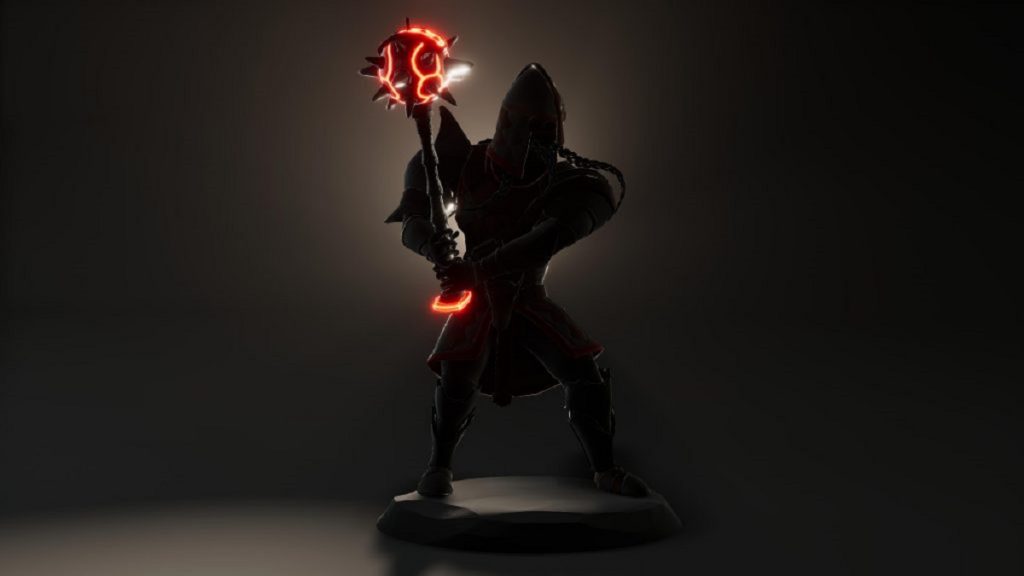
Tell us about the development process of Beneath The Six in terms of incorporating AI
Where we started was from this idea my co-founder Ste Curran called digital toys. Basically, that just means things that are not physical but that you kind of want to own that tactile that you can play with.
We started with the idea of dice, partly because it’s just a really simple thing to do. A dice is a very straightforward object, it’s just a 3D polygonal shape. But there’s this whole world if you delve into it, like Artisan dice makers and people that make these incredibly beautiful dice out of amazing materials with things inside them and engravings on them. We’re kind of like that.
Obviously, dice have a lot of uses in lots of different games as well, so in terms of wanting to create something that had beauty and collectability, but also lots of different use cases, dice felt like a really nice place to start.
Having done that, we’ve built a bunch of tech to allow us to generate lots and lots of different sets of dice with different traits and looking different ways and behaving in different ways. And then we thought about characters, so the way that the dNo universe works is that characters will effectively take on traits of dice that you drag into a character created to make them.
Dice is the fundamental thing that we will sell in the game. So if you’ve got a set of wizard dice, then you drive all of those into the character creator, then it will create some kind of wizard and the skills will come from which specific wizard dice you’ve got in there. And if it’s one of those days that it’s a set of blue dice with stars embedded in it, that will somehow be reflected on what that character looks like. But then you can mix and match.
Beneath The Six started out just as a simple 2D prototype…
Harry Holmwood
If you’ve got some warrior dice as well and you blend some of those in, then your character’s gonna have some strong magic skills, but it’s also going to be stronger physically, and might have a sword as well as a magic wand. We liked that idea of tying these things together.
Alongside that, we started building prototypes of different games and Beneath The Six started out just as a simple 2D prototype where we generate a simple dungeon out of hexagons and you’d have a little 2D Sprite character that could go around, fight monsters, you collect weapons, you find treasure, and we really liked that. So once we’ve done that and we’d enjoy playing it, then we started making a full-on 3D equivalent which is Beneath The Six.
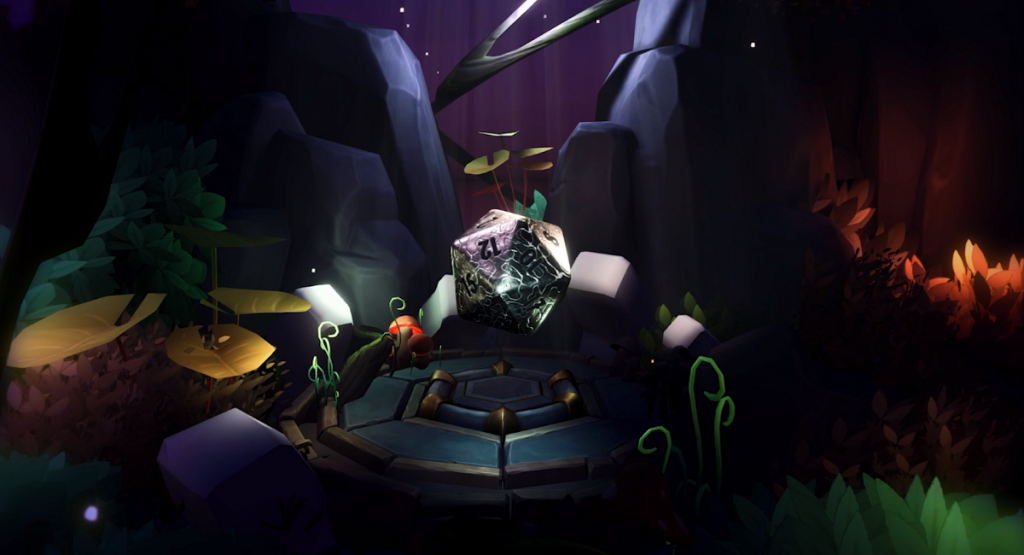
How do you see AI narration and voice acting evolving in the gaming industry?
It’s a really interesting area. The first thing we’re going to do is actually put out a tiny thing called the arena, which is like a combat test. We’ll just put that out to a very small number of players and give codes out on our Discord to allow people to come in and play. They’ve been generated every day and it’s like a whole new world which is potentially infinitely large in generating from Beneath The Six every day.
Further down our roadmap, we want to go further and actually allow every player to own their own world or worlds. And each of those worlds will have its own monsters, its own lore and layout, so everything is unique to that player.
It’s like a whole new world which is potentially infinitely large in generating from Beneath The Six every day
Harry Holmwood
Obviously, I can’t have a voice actor recording your content at midnight every night just before the scene goes live. And you certainly can’t have one recording new content for every player. But a really simple example in the arena at the moment when you go in, the voice will tell you these are the kind of things you’re going to encounter in the dungeon. And it might give you a bit of history of the world that you’re finding yourself in today or that kind of thing. It just adds some richness and depth to it.
The way that it works is like the world generation outputs a world but it also outputs what we call a meta story, which you can kind of think of a little bit like the stories you would get from a game like Dwarf Fortress.
Think of it as like a series of bullet points, that these are the things that happened or these are the history of the world, these are the gods that created it as well, these are the monsters, whatever it is. So we take that meta story, and that goes through a large language model to turn it into real words. And we fine tune that large language model on content that we write. So that we sort of create the text-based voice, if that makes sense. So there’s a consistent style in the output that you get. And then that gets pushed through the ElevenLabs technology, which is what we use to generate the actual narrator’s voice.
With ElevenLabs, we were really lucky. We got introduced to them, as one of our early investors is also one of their early investors. It’s one of those things where everything sort of came together at the right time. And the great thing about the ElevenLabs tech is it doesn’t just sound like a real voice, it actually imbues emotion into the voice and we recorded many hours of dialogue with Tom (Canton, voice actor) using different emotions and styles so that the voice can sort of deliver quite an emotionally compelling performance. I think if you actually had Tom delivering every line, that’d probably be better because he’s an incredible actor.
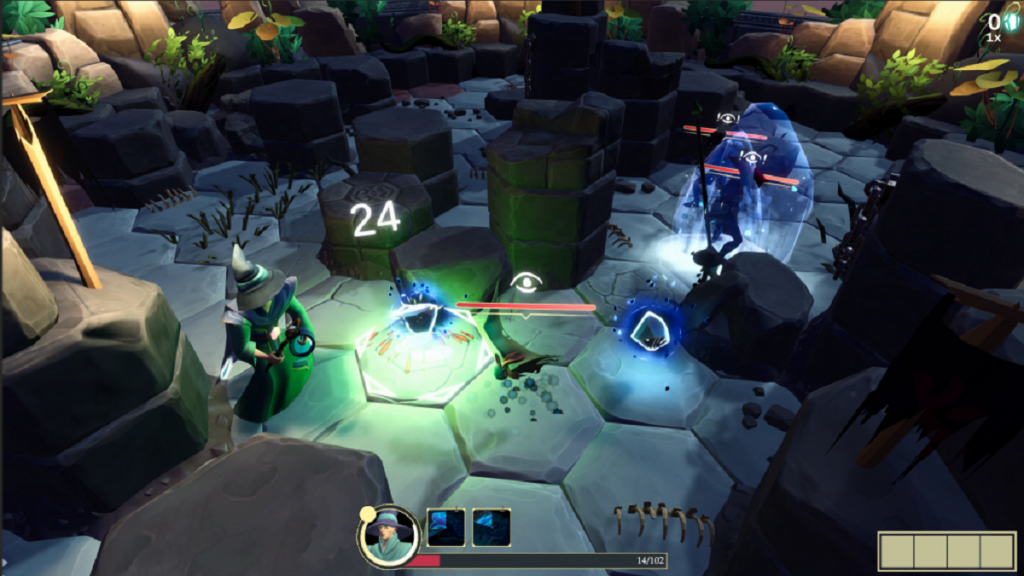
What do you hope players will take away from the experience?
It’s something that we see growing over time. I think you probably wouldn’t notice that it’s an AI-generated voice. So that’s a good thing. We don’t really want people to be thinking about the technology that’s behind it, we just want people to be enjoying the fact that they’re being sold through this.
I used to be a game audio guy back in the 90s. I was Sony’s game audio guy and one of the things you find is there’s only so much you can record. And you know now we’ve got much more storage capability than we had before and budgets are much higher than they used to be. But even so, I think you find with a lot of game audio, you hear the same clip from time to time and that starts taking you out of the experience when you’ve heard the same thing before.
I think you probably wouldn’t notice that it’s an AI generated voice, so that’s a good thing
Harry Holmwood
Often when you listen to games, you can kind of tell that an actor has come into the studio, unlike say they’re doing a movie where they know the script and they’re able to focus on the emotion. Whether it’s a method actor, becoming that character. I think in games it often feels like someone’s reading some lines and it’s true with animations as well.
Quite often in games, one actor will read all their lines and another actor will read all their lines separately and then the game and the sound engineers merge them together, but it doesn’t give you that naturalistic kind of feel that you get from true actors actually bouncing off each other.
I can imagine we’re probably not that far away, maybe a handful of years at most, from being able to replicate that really incredible interaction you get when you’ve got multiple great actors interacting together. So I think we’ll probably bizarrely actually find that in time, AI narration makes more compelling interactions between the actors start to be possible.
Also it just means you’re not going to have that repetition. Increasingly, we’re seeing games getting bigger and players playing games for longer. People play certain games for months or years, whereas it used to be you play a game for a week and then you get a new one. So I think just being able to have that limitless amount of content is going to be more and more of a theme, not just in terms of voice but in terms of environments and all aspects of the game.
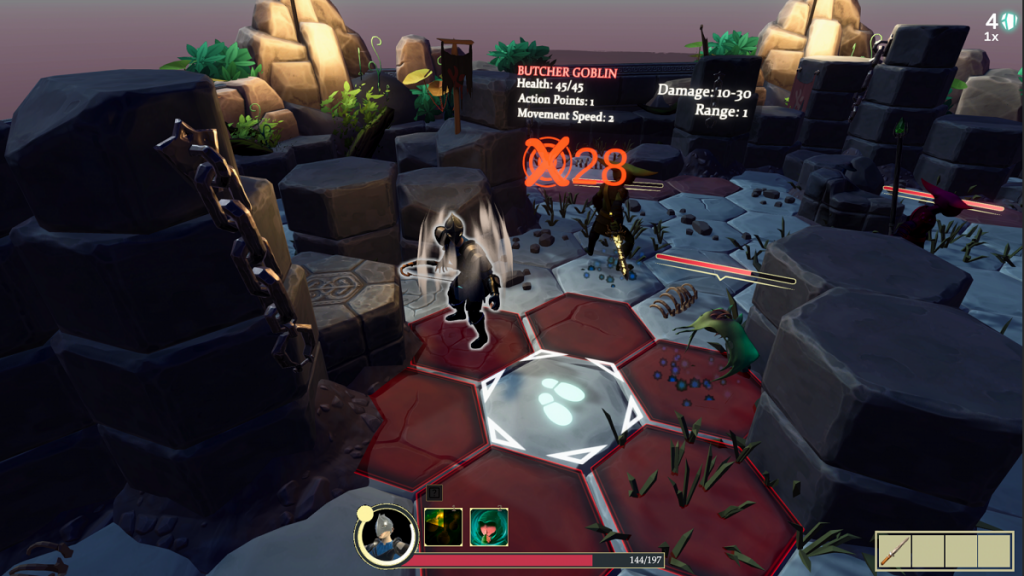
Do you plan on utilising AI-generated voices and narration in future Magicave projects?
I think so. Everything we’re doing is pretty experimental. We’re trying to do some stuff that no one’s done before and we’re leaning into certain technologies that are at the cutting edge. So everything we do is like, “Does anyone like this? Does anyone care about it?” If people like it, we’ll do more of it.
At the moment it’s starting with a narrator, but you can certainly imagine a bigger virtual world with lots and lots of NPCs. And being able to bring dynamically generated voice to all of the NPCs in the game.
We’re trying to do some stuff that no one’s done before
Harry Holmwood
The big challenge with AI is controlling it. As we’ve seen with not just the voice technology but some of the text generation or graphic generation that people are doing with AI, it’s fascinating but it’s still very early and a lot of the time it can produce unpredictable or undesirable results. I think people are gonna get better at training and controlling AI to kind of create a consistent game world.
For example, at the moment you can’t use ChatGPT to write your novel, but you could use it to write a 100-word article that sounds quite compelling. But the more you try to do with those things, the more you realise the limitations of them and you get that lack of internal consistency or get ChatGPT just making stuff up that sounds compelling.
You will increasingly see people building ways to control that, like we are in a fairly simple way with our meta story stuff. You output from your tech the consistent world and then you’re using some AI stuff to kind of realise that well but within the very strict constraints that you want. So AI isn’t writing our stories, AI is kind of glueing together and translating our stories into proper English.
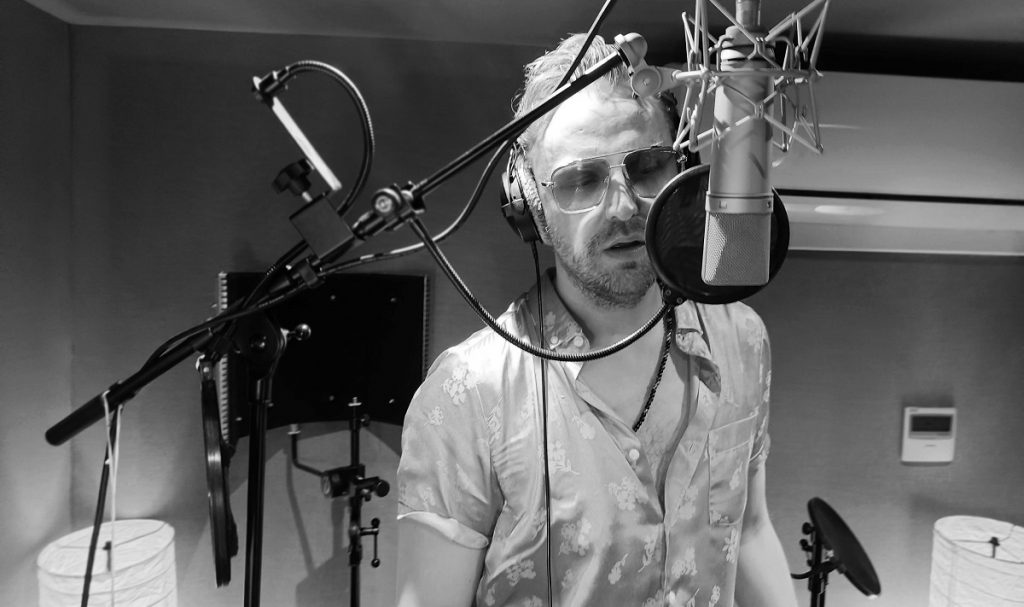
What made Tom the perfect fit for lending his voice to the game’s narration?
Tom is someone I know well for a long time, which was helpful. The collaboration came out of just chatting to him about some of the stuff we were doing and some of the stuff that he was doing. But I think more than that, it’s just in terms of the kind of people we think will enjoy dNo, our hobby and Beneath The Six, the specific game. Tom’s in The Witcher, he plays a character called Filavandrel, who is the king of the elves.
I think that audience, people that are into The Witcher are likely to be into these sort of fantasy games and fantasy books. So it just felt like everything suddenly came together and so we had to do this. We’ve got an actor that’s in one of the biggest TV shows in the world that’s about battling demons and goblins. And we’ve got this AI technology from these guys that we’ve got to know and we’ve got this game that we’re developing. So it’s just one of those things that just have to happen really.
And Tom retained the rights to his vocal AI presence in the game?
We were hearing about some voice actors, typically, some of the bigger companies making people sign contracts that were like, ‘Okay, you’re coming in, you’re doing a daily recording session for this, but we have the right to use your voice to do this and this and this’, and it just struck me as being a terrible thing.
An actor’s voice and their likeness is their brand. And it’s how they make their living. So for a big tech company to say, ‘Well now, ad infinitum, I can make as much stuff as I want with your image or your voice’, it just feels wrong. And ElevenLabs feel exactly the same way.
You don’t want to be the bad guys. A lot of my friends are actors or content creators of some kind or other, so it was really important to us that we put something in place that meant that that wasn’t going to happen.
An actor’s voice and their likeness is their brand
Harry Holmwood
What we want out of this is a great actor delivering an infinite amount of voice effectively that you couldn’t do any other way. And from Tom’s point of view, I just felt it was really important that we assigned all of the rights to him, so we licensed that voice back. If he wants to go and sell that to Activision or Electronic Arts for one of their games, then that’s how it should be. We shouldn’t own his IP.
I feel that as a game developer as well. I’ve been making games for 30 years and one of the things that’s really important is owning your own IP. Ideally not giving that control up, that ability to earn a living from the thing you’ve created by giving it to someone bigger and stronger.
People are starting to see that there’s some really exciting benefits with AI technology, but it does come with some ethical and moral issues around it, not just the issues you get with any kind of technological development. This technology is allowing this thing to happen more efficiently or faster or on a bigger scale. But obviously, that has an impact on the people that were doing that work.
When recorded music started, before that, if you wanted to hear music you had to go and listen to a live musician. And there was obviously a lot of resistance to the concept of recorded music, or going back even further to the concept of printing textile, or machines that could weave. All of these things have had those kinds of repercussions.
You need to be mindful of that kind of thing without necessarily wanting to stop innovation. I think there’s a degree to which these things are inevitable and they’re gonna happen.
How do you see AI shaping the future of game development and player experiences?
I think it allows you to create bigger worlds with more freedom. If you think of a game with a massive world at the moment like Grand Theft Auto – hugely sophisticated but still, every building has been handled by someone. So there’s a limit to how big that world can be. Every line of dialogue has been written by someone and recorded by someone. And so there is a limit to how real and compelling that world can be.
But I think you’re going to be able to do things that are bigger, which give players more freedom, which are more unique for that player and maybe starts to put some control into the hands of the player. We love the idea of modding and we’re going to be releasing an SDK that allows people to take all of our assets and games and do whatever they want with them, if they want to build their own games or mod our games or whatever.
If AI technology allows smaller teams to punch above their weight a bit, I think that can only be a good thing
Harry Holmwood
I think making those things more unique to individual players is one of the things that AI can bring. Also, it’s hopefully going to be a good thing for small teams. The game industry is strange. At one end you’ve got really small teams with only 15 people. And on the other hand, you’ve got people like Electronic Arts, Activision and Take-Two who might spend $200 million making a game.
From the player’s point of view, they shouldn’t really care whether a game’s been made by one person or 500 people; what they want is a really good game. So if AI technology allows smaller teams to punch above their weight a bit, I think that can only be a good thing.
Obviously, the big companies will also use AI technology, so it might just be that the barriers go up and up and up. But it does feel like making efficient use of the talented people you’ve got is always a good thing. Allowing people to achieve more is a good thing. As a creator, I like to be able to do more with less when you can.
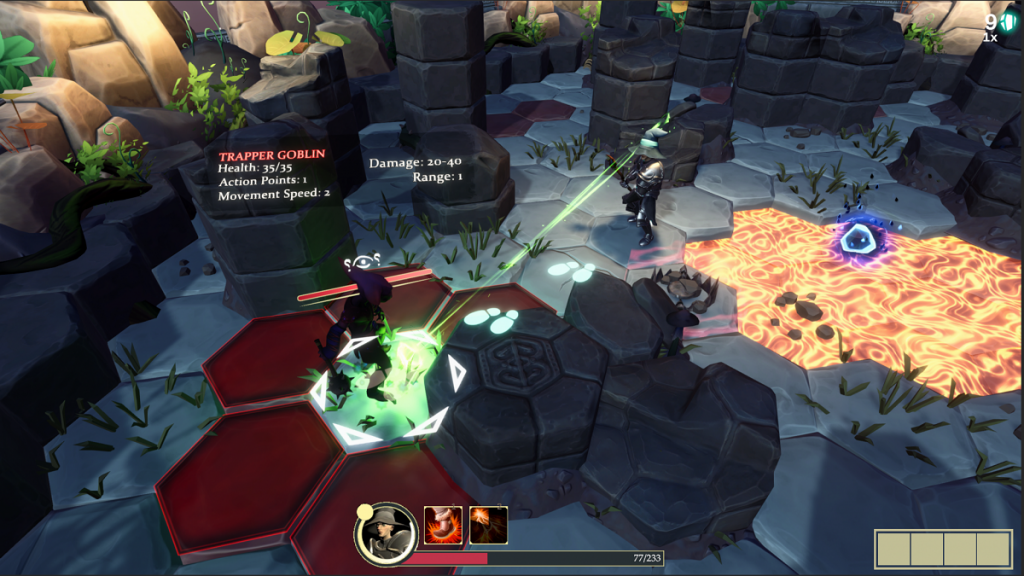
As AI continues to advance, what are some ethical considerations developers and industry professionals should be mindful of?
There’s certainly a big question mark around intellectual property. Particularly I think with the visual side of things. So if you’ve got an AI that has gone off and scraped loads of art, there is a very valid debate going on around the ownership of that IP and I can absolutely see both sides of this argument.
On the one hand, most artists, when they’re drawing something will be using other material as reference and that’s a very established part of how artists work. And some people will argue that that’s all an AI is doing: it’s looking at the stuff and it’s using it as reference. But a lot of other people will say, ‘Yeah, but it’s kind of different’.
As a developer, be cautious about using Midjourney or Stable Diffusion to create your in-game assets at the moment
Harry Holmwood
And I think the reality is, it’s almost like a philosophical argument. We don’t really know what our brains are doing when they’re being influenced by things. And we have reached a point where with music and with graphics, people can copy and be influenced. And there’s a line that if you go over it and it’s too close to the original, then you’ve gone too far.
We’ve got situations where some copying or influence is okay, so long as you don’t go too far in terms of the output being similar to something else. But we don’t know if that’s a valid argument with AI or not yet and I think we need some legal clarity on this stuff.
If I write a tune, then I own the copyright in that tune automatically. If I’m a mathematician and I come up with a new equation, there’s no copyright on mathematical equations. So the law has decided over the decades that protection of this thing works in this way and that thing works in that way. And we’re in this grey area at the moment where we just don’t know – is it okay, is it not okay? It’s a philosophical discussion we can have. But at the moment there is not really that legal clarity, so I think that needs to be clarified.
I think you should be very careful as a developer, be cautious about using Midjourney or Stable Diffusion to create your in-game assets at the moment when we don’t know whether that could be infringing someone or not.
Try to be respectful of what other people are doing and what other people care about
Harry Holmwood
Is it going to be the case that if it looks too much like something then that’s infringing? Or is the very act of using one of those models that has been trained on IP it doesn’t own, is that going to be an infringement? We just don’t know that yet. I would certainly steer clear of doing anything like that for the time being.
So that’s why our stories coming out of metadata are being trained on content that we’ve created. I think generally, to use the Google phrase, ‘Don’t be evil’, there’s always going to be different people who will have different opinions as to what is evil or not, but generally, try to be respectful of what other people are doing and what other people care about.
What challenges do you see ahead?
Well, making games is hard. We’re very lucky as a well-funded company. We’ve got some amazing investors, got a really good team and we don’t plan to get really big. We’ve got a very ambitious vision that’s going to take multiple years to realise.
Probably the big challenge is the steps we go through to be a sustainable company. Many years before these worlds of ecosystems of players and creators become a reality, we need to build that community and make games that are going to be enjoyable for people and hopefully people want to spend some money to play. So I think those are the challenges; keeping your eyes on the far future but doing that in little steps.
We’ve got a very ambitious vision that’s going to take multiple years to realise
Harry Holmwood
I’m sure quite a lot of what we’re going to be doing is going to be no good. We’re not arrogant enough to think we’ve seen the future and we know exactly how it is. So I think really the challenges are hopefully getting enough people to play our stuff and we can see if they like it.
And a big challenge is that there’s a lot of games – there’s a lot of good games. The advice I always gave people thinking about their games is to imagine your game on a shelf with 10,000 other games, “Why am I going to walk up and pick your one?” So I think that’s the biggest challenge for all of us in the industry.
Harry Holmwood is a veteran that’s been in the video games and online space for over 30 years. He is a computer science graduate with extensive experience in the gaming industry. He has led successful game development projects, founded a profitable games software development company, and served as a consultant and advisor to various companies in the sector. Harry is also a former BAFTA games judge and frequently shares his insights through media appearances and lectures on technology and business in the gaming industry.
Isa Muhammad is a writer and video game journalist covering many aspects of entertainment media including the film industry. He's steadily writing his way to the sharp end of journalism and enjoys staying informed. If he's not reading, playing video games or catching up on his favourite TV series, then he's probably writing about them.






































